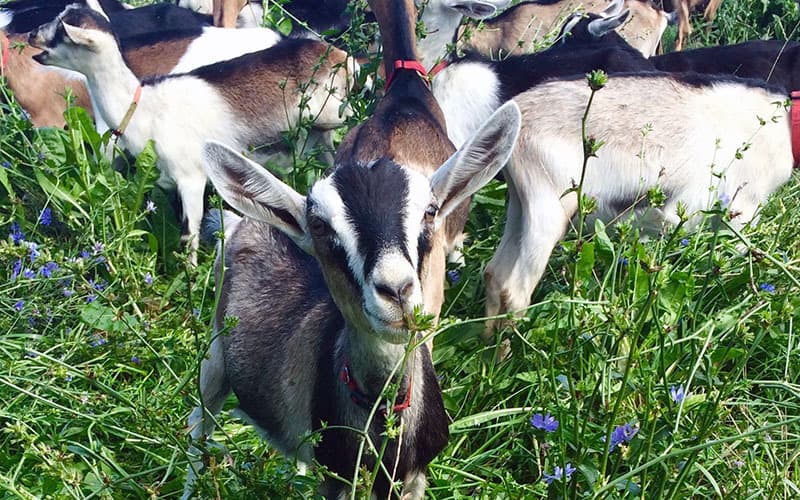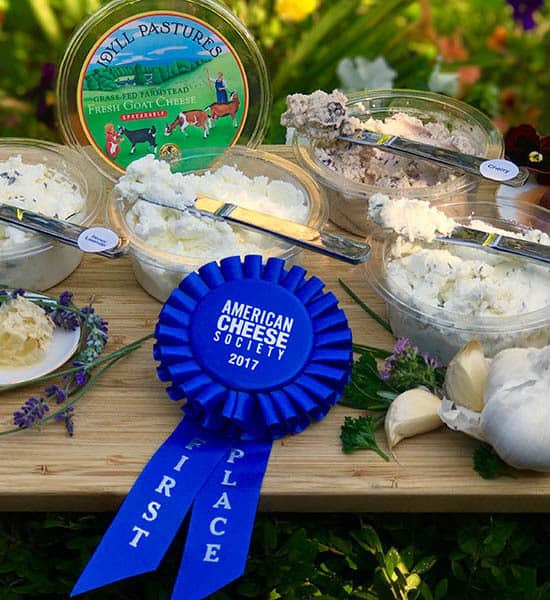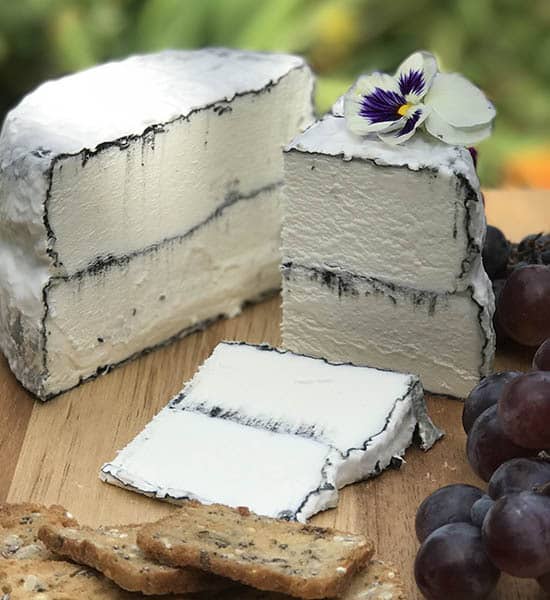
For Amy and Mark Spitznagel of Michigan’s Idyll Farms, owning a goat farm wasn’t always part of the plan. Mark is a hedge fund pioneer, best known for “tail-risk hedging”, and the CIO of hedge fund management company Universa Investments, while Amy has explored many paths. She has trained as a schoolteacher, traveled as an international flight attendant, and studied acting.
Still, a farm at the edge of Lake Michigan on the tip of the Leelanau Peninsula called to them, and the Spitznagels bought the farm in 2010. The couple had a summer home in the town of Northport but wanted to get involved in local agriculture. This stemmed largely, Amy says, from a desire to teach their children about the origins of food and animal husbandry.
The tangible and productive nature of the farm stands out, too, for Mark, the founder and CIO of a multibillion-dollar hedge fund management company. “I live in a world of information and abstractions,” he says, “and for me, that grounding is really important.”
They considered pursuing wine or cherries—the pride of the peninsula—but Amy says, “the answer kept coming back to goats, and cheese.” They found goat’s temperament charming and the children could handle it, so the choice became obvious.
In 2013, Idyll Farms began making and selling goat cheese. But getting there meant lots of trial and errors, says Amy, and “building, only to demo the next year if it did not work.”
 Turning the dreams of Idyll Farms into a reality was a collaborative effort, and the Spitznagels went to experts for guidance. They learned from cheesemakers in France and then, with those same experts, built the Michigan farm—receiving on-the-ground advice on everything from choosing equipment to selecting a starting herd of Alpine goats. They traveled to Switzerland and around the United States and chose farmers—willing to learn with them and to operate with practices they believed in.
Turning the dreams of Idyll Farms into a reality was a collaborative effort, and the Spitznagels went to experts for guidance. They learned from cheesemakers in France and then, with those same experts, built the Michigan farm—receiving on-the-ground advice on everything from choosing equipment to selecting a starting herd of Alpine goats. They traveled to Switzerland and around the United States and chose farmers—willing to learn with them and to operate with practices they believed in.
At its core, the farm is committed to sustainability and organic practices, using a rotationally grazed, pasture-based approach to goat farming. “The goats and the pastures work together symbiotically, as they were meant to do, to create something great both in our products and in the environment,” says Mark.
Though according to Mark, his paths of finance and farming are mostly separate, that focus on sustainability seems to have elucidated parallels between the two. “I would say that the farm has given me a much greater appreciation for respecting natural systems, and, despite tempting short-term benefits, the importance of restraint in trying to manipulate them,” Mark says.
Using those foundations of rotationally-grazed, pasture-based farming, Idyll Farms has decided on a goat cheese that’s rooted in the French style, Amy says, but influenced by Swiss Alpine transhumance and pasture management and modified for the American palate.
- Idyll Pastures Spreadables
- The award-winning Idyll Gris
There’s no doubt that Idyll Farms’ trial and error has paid off: In the past four years, several of their cheeses have won acclaim. At the 2017 American Cheese Society Judging & Competition, Idyll Farms received seven awards. The ash-covered Idyll Gris and super fresh Idyll Pastures Spreadable took first place in their respective categories.
Much of Idyll Farms’ cheesemaking success comes from a vertically integrated operation, says Amy. The farm has control over every part of the process—from what the goats graze on, to facilitate the relationship between cheesemakers and farmers over milk properties, to the aging of the cheese in their own affinage caves. It necessitates, she says, “the highest quality of our milk and the skill of our cheesemaker to navigate the ever-changing qualities of a pasture-based milk supply.”





